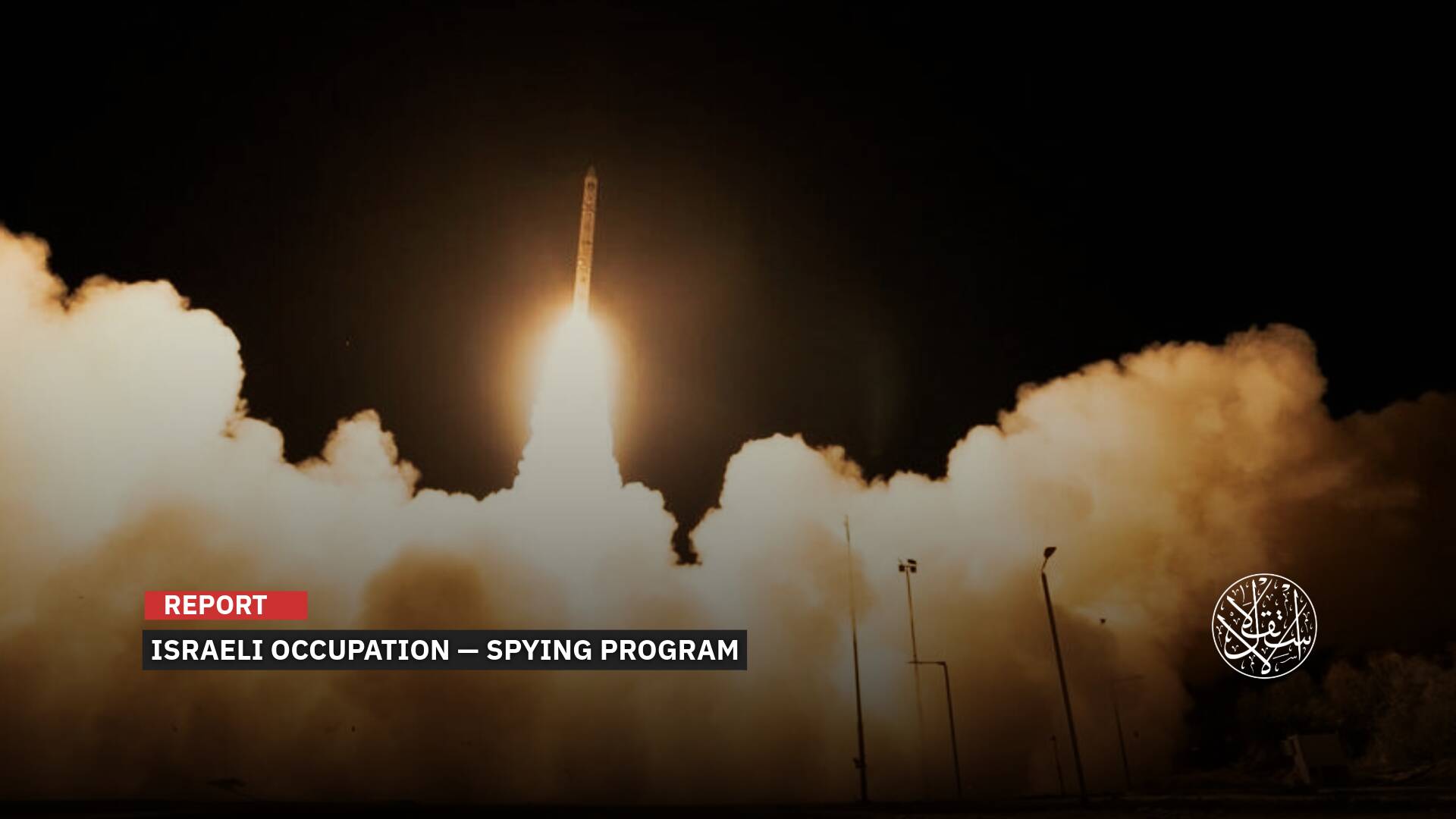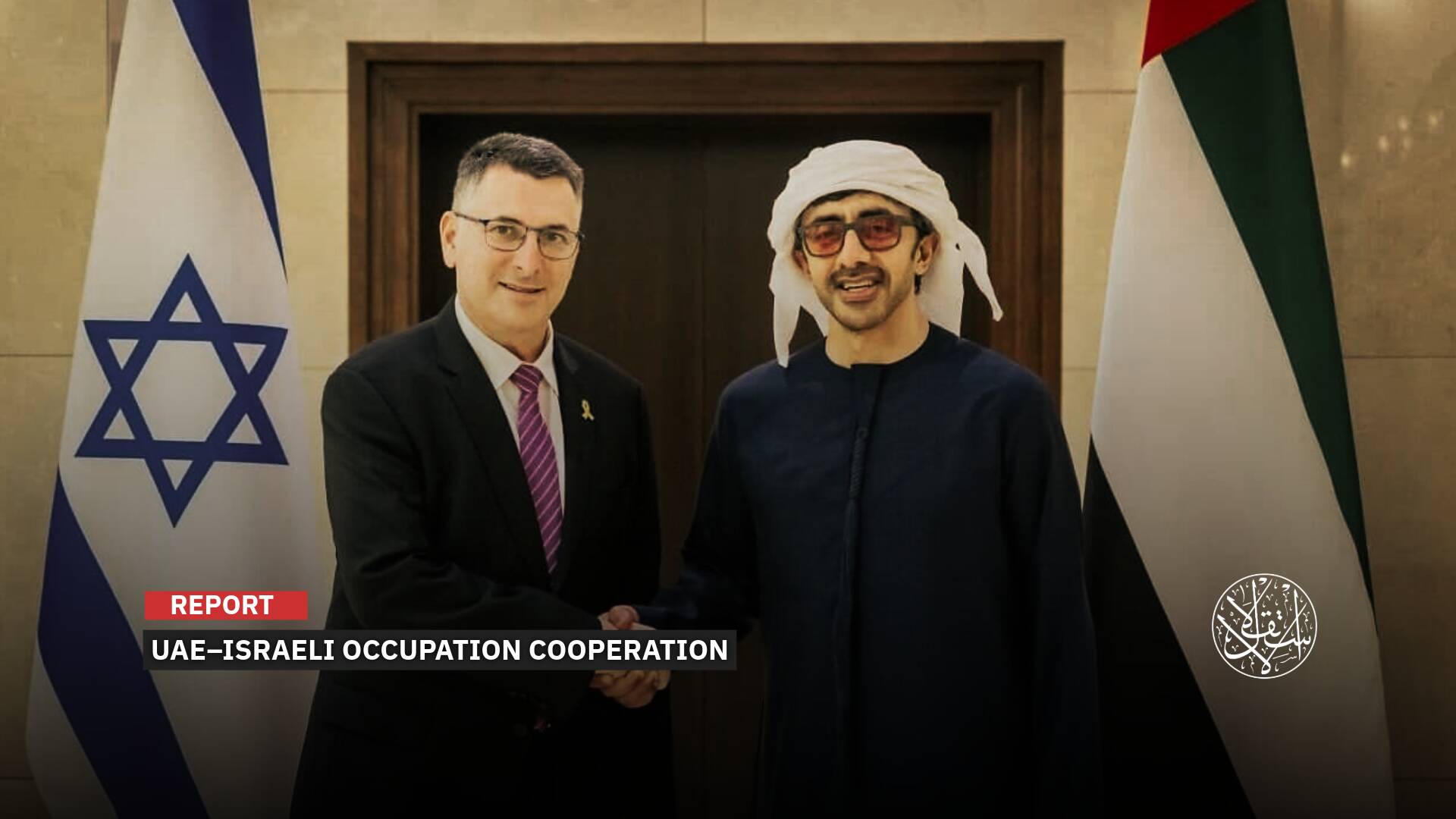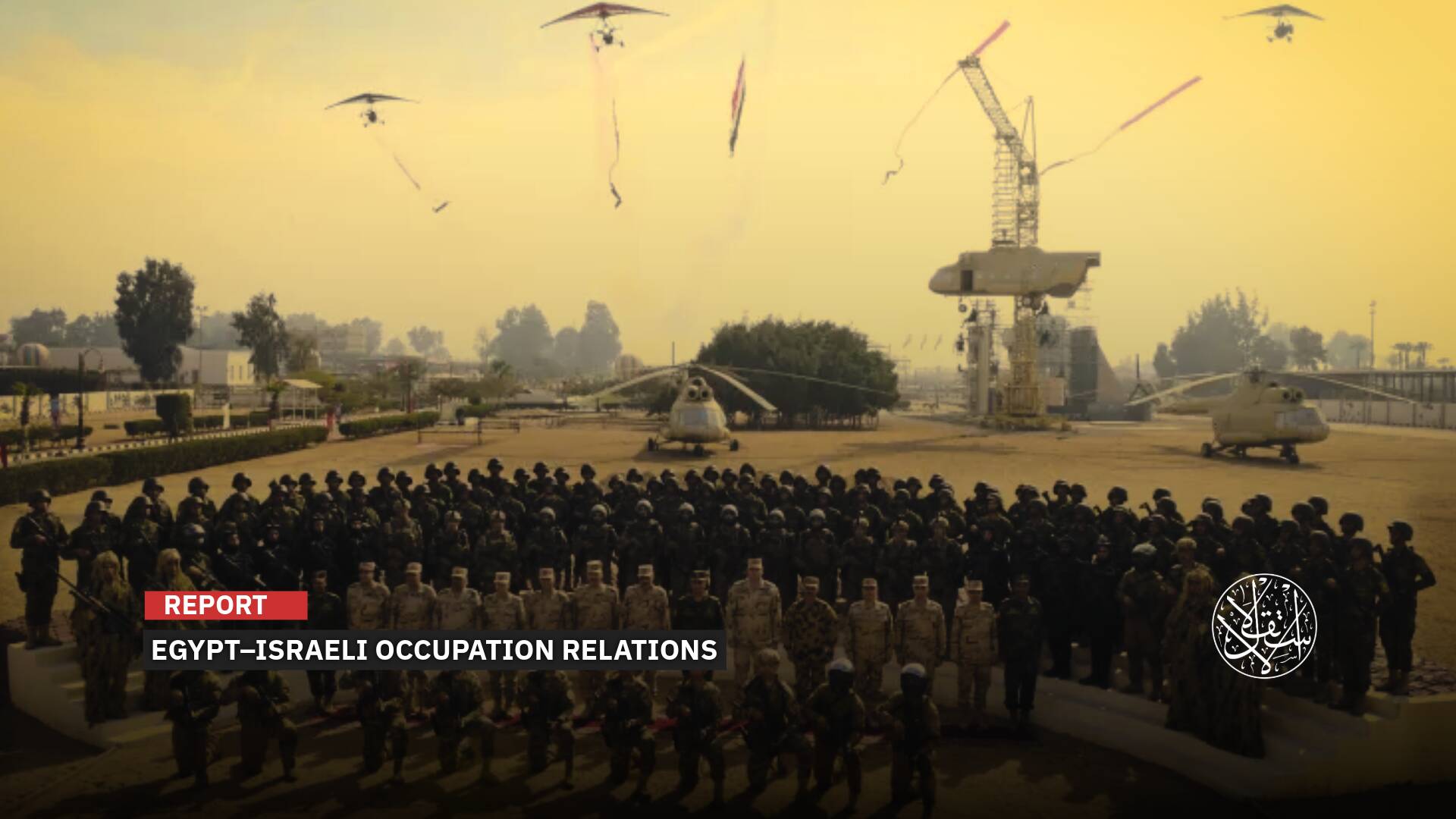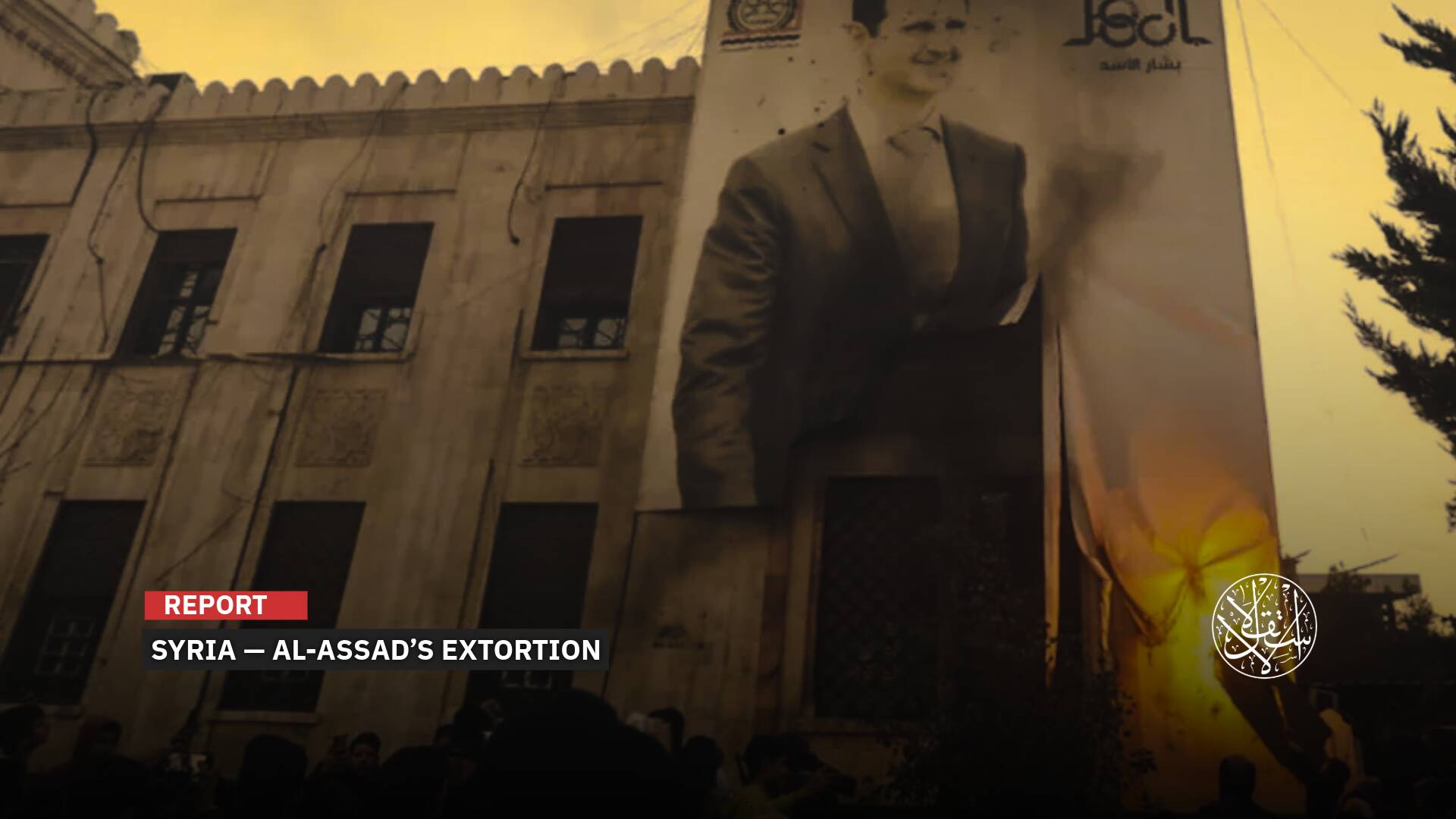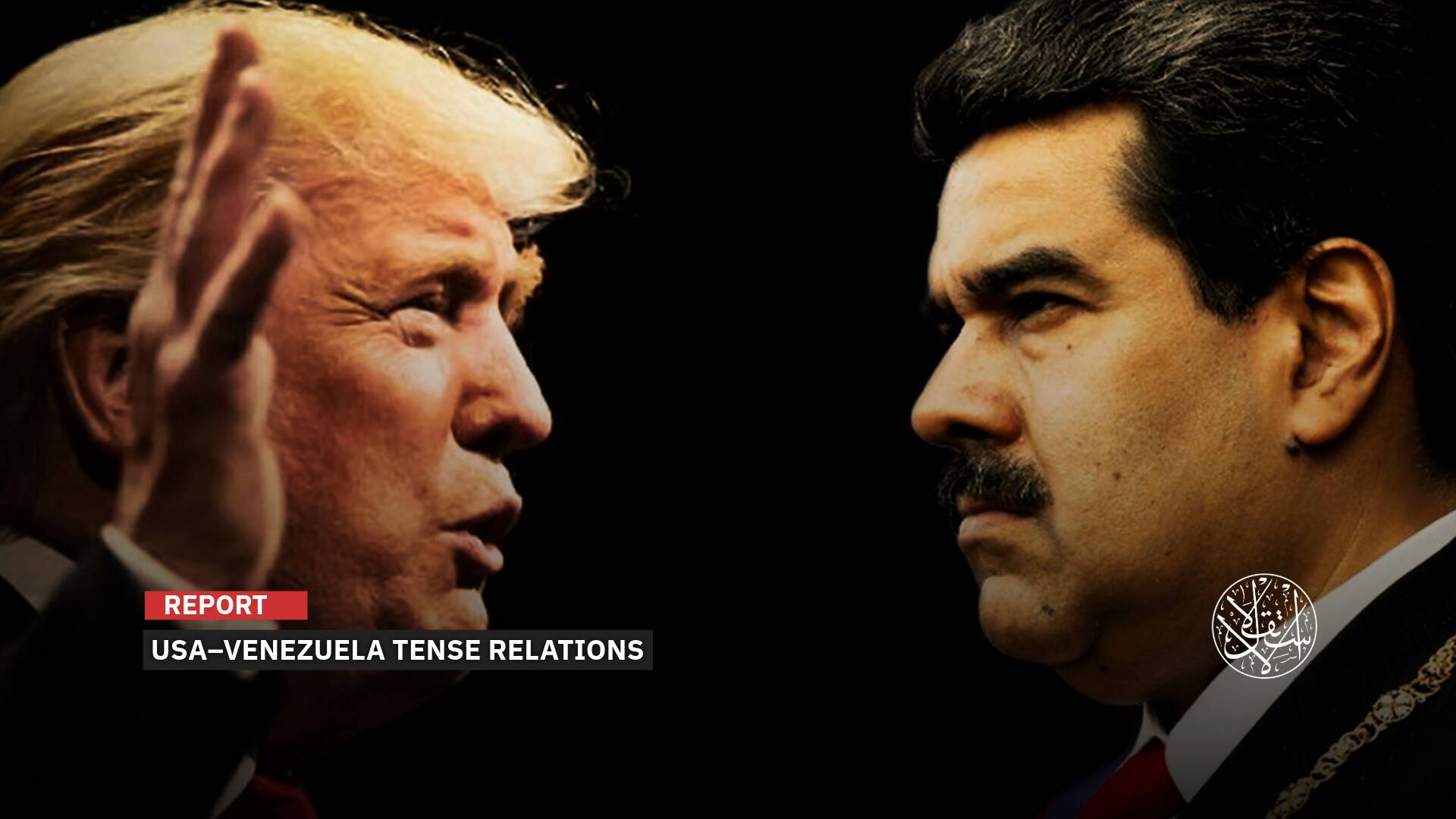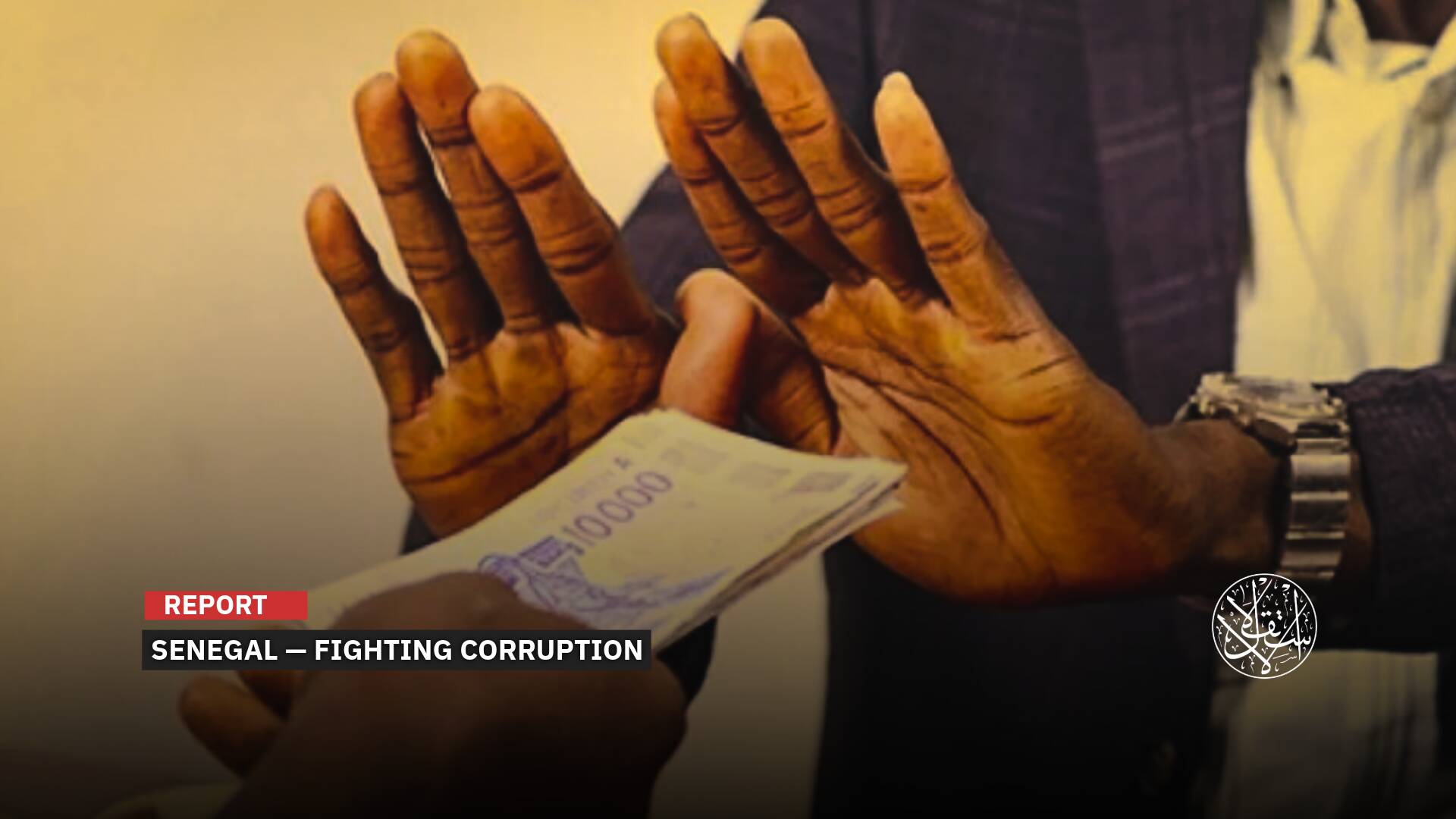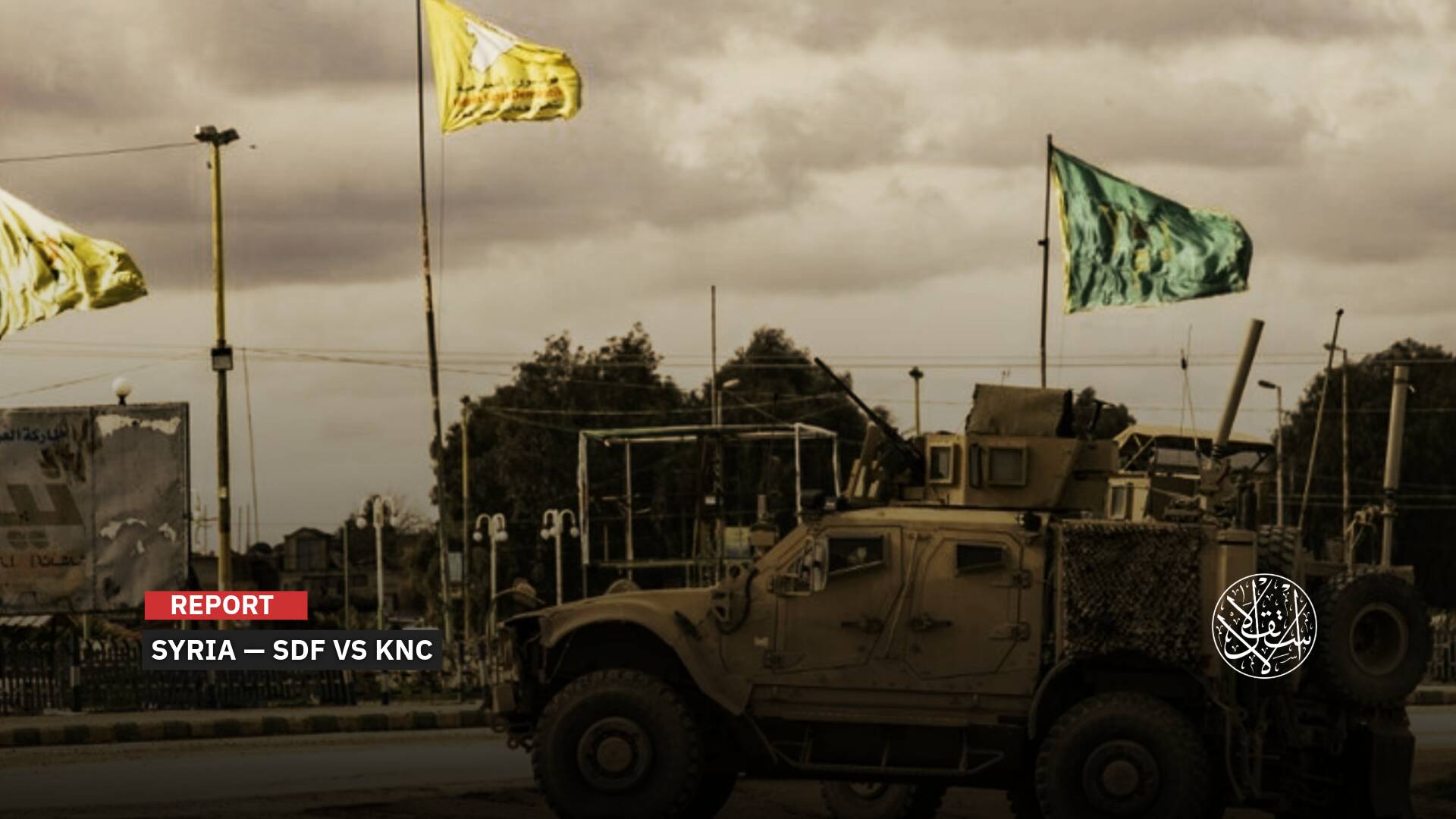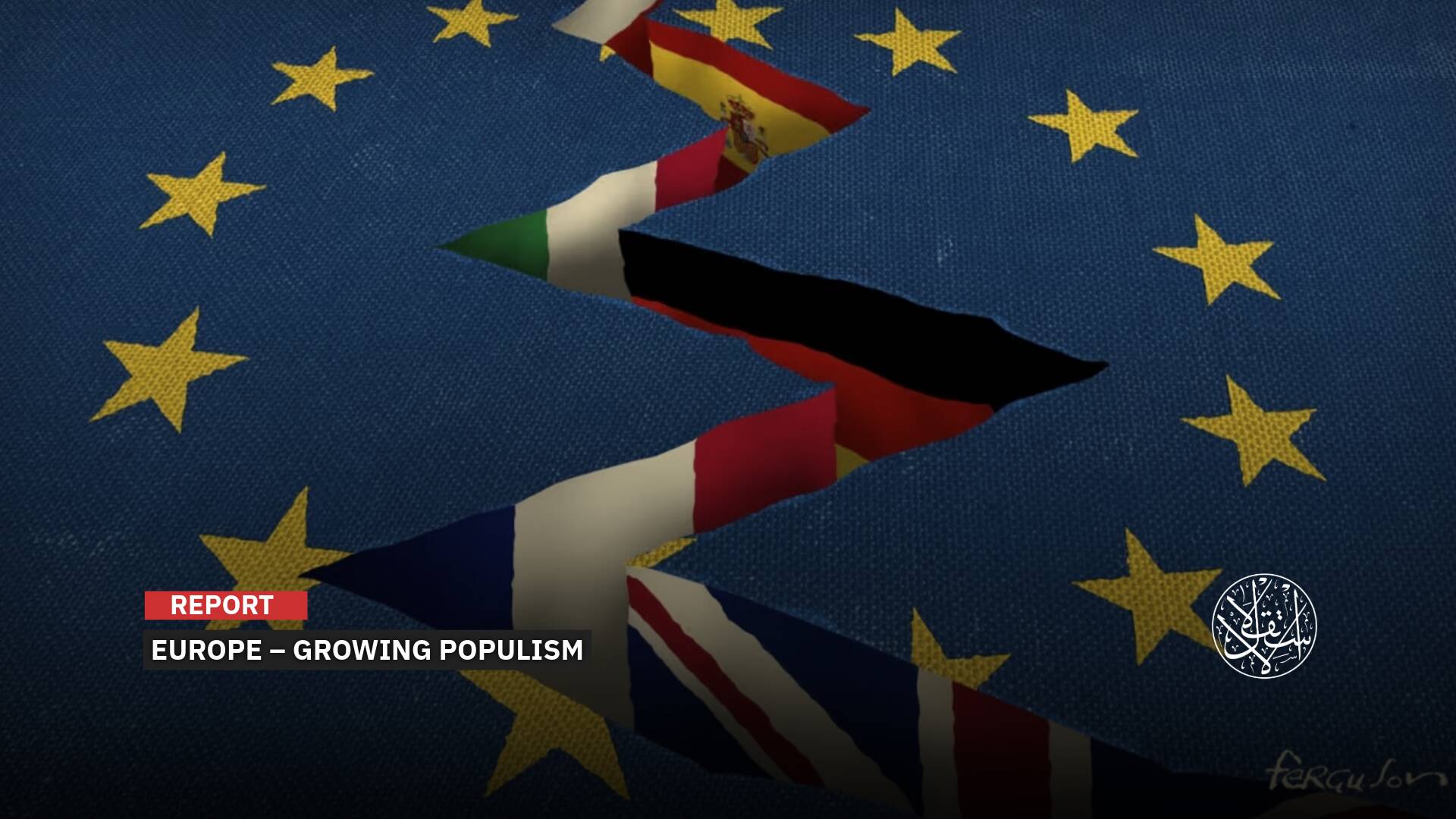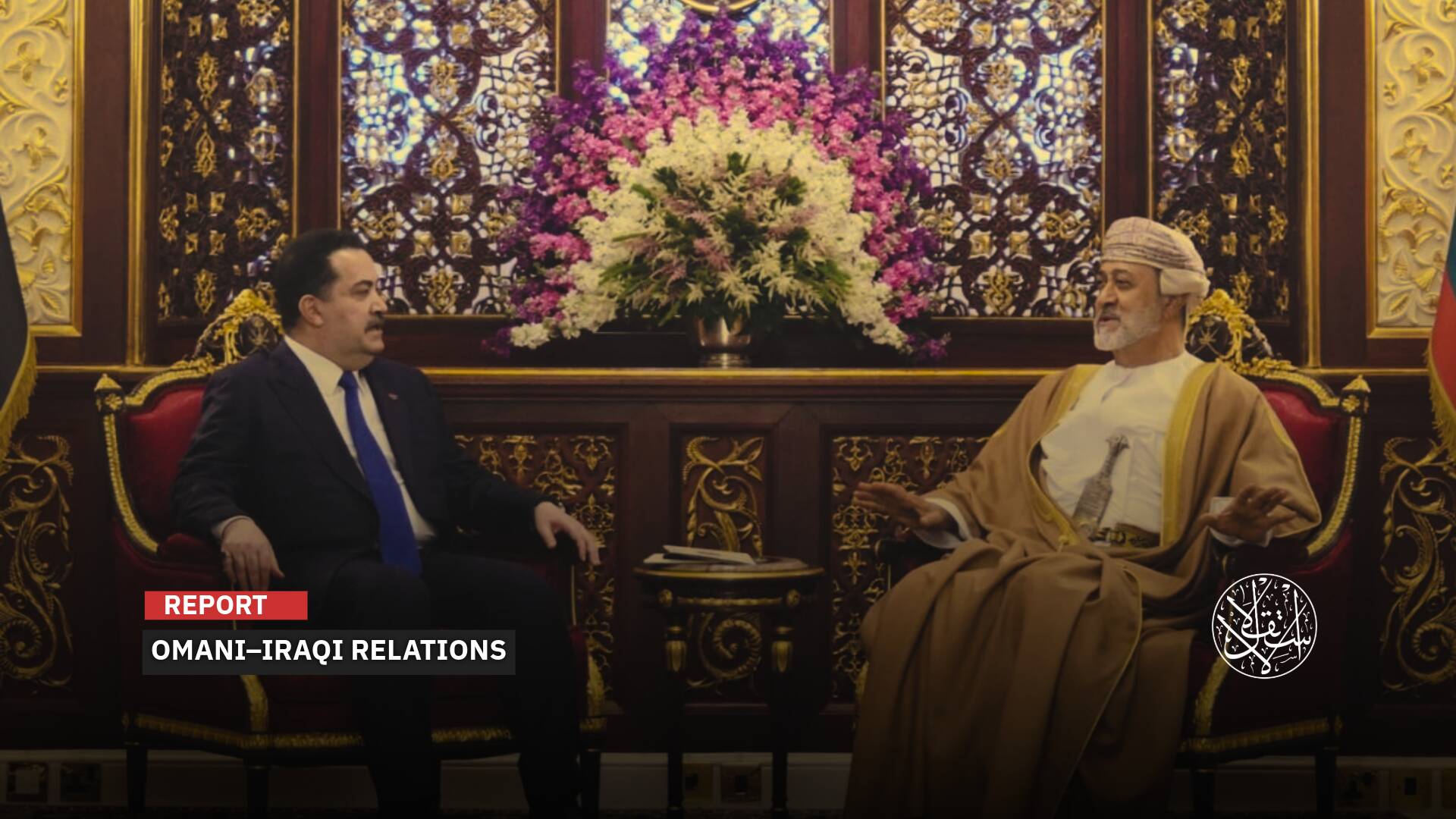Syria's Shift: Why Is It Pursuing Closer Ties with Saudi Arabia?

Focusing on security and political relations with Saudi Arabia is sufficient to propel the economic aspect forward.
Despite previous efforts to reinstate Bashar al-Assad after his return to the Arab League, Syria's new administration chose Saudi Arabia as its first foreign destination following the ousting of Assad's regime on December 8, 2024.
On January 2, 2025, Saudi Deputy Foreign Minister Waleed el-Khereiji welcomed Syrian Foreign Minister Asaad al-Shibani, Defense Minister Murhaf Abu Qasra, and Head of Syrian Intelligence Anas Khattab at King Khalid International Airport.
‘New Chapter’
“During this first visit in Syria’s free history, we aim to open a new and bright chapter in Syrian-Saudi relations, one that reflects the rich shared history of our countries,” al-Shibani posted on X.
According to the official Syrian news agency SANA, the Syrian delegation arrived in Riyadh at the invitation of Saudi Foreign Minister Prince Faisal bin Farhan.
The Saudi Foreign Minister met the Syrian delegation at the Ministry's headquarters in Riyadh, where they discussed several issues of mutual concern.
Meanwhile, Saudi Defense Minister Khalid bin Salman also held a meeting with the Syrian Foreign Minister, Defense Minister, and Head of Intelligence in the new Syrian administration.
The Saudi Defense Minister described the meeting as “productive,” stating that they discussed the latest developments in Syria and ways to support the transitional political process to fulfill the aspirations of the Syrian people and ensure Syria's security, stability, and territorial integrity.

“Our brothers and sisters in Syria have suffered for years from war, destruction, and difficult living conditions. It is time for Syria to stabilize, rise, and benefit from its resources, especially its beloved Syrian people,” the Saudi Minister of Defense said on X.
Saudi Arabia launched an airlift to Damascus International Airport in early January, carrying humanitarian aid, including medical, food, and shelter supplies, to “alleviate the difficult conditions” of Syrians.
Abdullah Al Rabeeah, Adviser to the Royal Court and Supervisor General of King Salman Humanitarian Aid and Relief Center, said, “The air humanitarian bridge launched today will be followed by a land bridge in the coming days to provide urgent relief to our Syrian brothers.”
Diplomatic Shift
Like other Gulf countries, Saudi Arabia severed diplomatic ties with Bashar al-Assad's ousted regime and closed its embassy in February 2012 in protest against the violent crackdown on the 2011 uprising.
Saudi Arabia had provided political and military support to the Syrian opposition before halting military aid after Russia's intervention in Syria in 2015.
In March 2023, Saudi Arabia announced the resumption of relations with Assad's fallen regime and led diplomatic efforts that resulted in Syria's return to the Arab League at the Jeddah Summit, attended by Bashar al-Assad in May of the same year.
Immediately after the fall of Assad’s regime, the Saudi Ministry of Foreign Affairs stated, “The time has come for the brotherly Syrian people to enjoy the dignified life they deserve, to contribute with all their components to shaping a bright future marked by security, stability, and prosperity, and for Syria to reclaim its rightful place in the Arab and Islamic worlds.”
The ministry also called on the international community to stand by the Syrian people and support Syria during this critical phase.
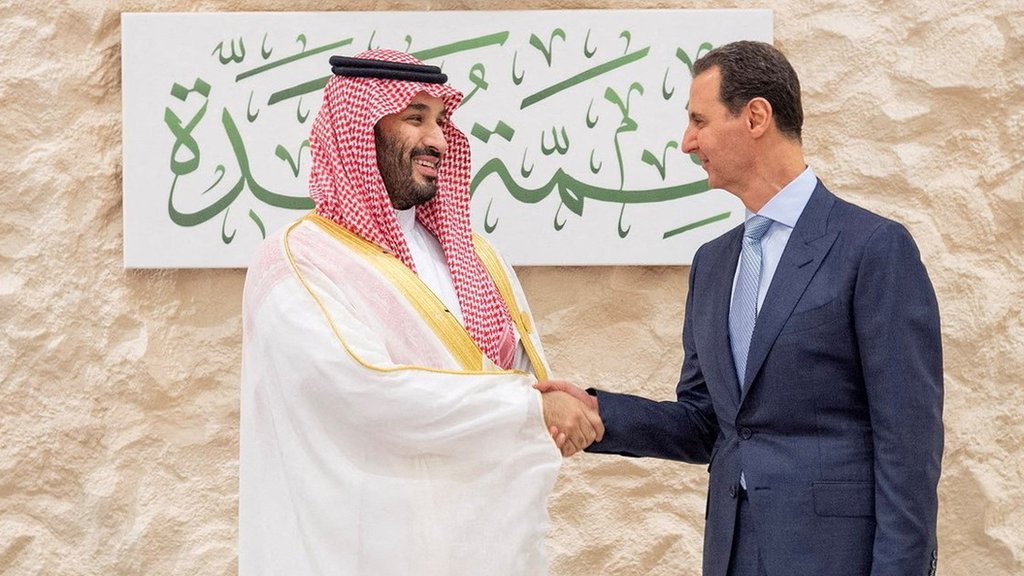
Ahmed al-Sharaa, leader of Syria's new administration, welcomed a Saudi delegation led by a royal court advisor at Damascus's People's Palace on December 23, 2024, as reported by al-Arabiya.
Notably, al-Shara, in his first televised appearance on an Arab channel after Assad’s fall, chose to speak with al-Arabiya.
In the interview, aired on December 29, 2024, he said Saudi Arabia would play a “very significant role” in Syria, benefiting from “major investment opportunities” following Assad’s regime collapse.
“Saudi Arabia aims for stability in Syria, which directly benefits Saudi Arabia and the Gulf at large.”
Al-Sharaa also mentioned in the interview that he was born in Riyadh in 1982 and returned with his family to Damascus when he was 7 years old.
A Leading Role
In this context, researcher at the Syrian Dialogue Center, Ahmad Korabi, outlined several factors motivating the new Syrian administration to improve relations with Saudi Arabia at this stage.
“The first factor is Saudi Arabia’s centrality in the region, especially among Arab nations, as it was the first country to help rehabilitate the fallen Assad regime,” he told Al-Estiklal.
“The new Syrian administration realizes that while it has good relations with Qatar and Turkiye, it needs to further strengthen ties with the key regional power, Saudi Arabia.”
Korabi also pointed out that “Saudi Arabia’s economic influence is a significant factor for war-torn Syria. Without Saudi support, reconstruction projects and related endeavors will present major challenges for the new administration in Syria.”

According to the researcher, “the key to political support and recognition of the legitimacy of the new Syrian administration, whether within the Arab League or the United Nations, lies in the hands of Saudi Arabia.”
“Saudi Arabia’s role is tied to its tribal and familial connections with Syria, which also include marital ties. This will play a role in supporting the transitional phase in the country.”
“Saudi cooperation or approval will give the new Syrian administration broader opportunities to diversify its alliances, expanding beyond Qatar and Turkiye to foster regional and international engagement,” Korabi noted.
Diplomatic Movement
Damascus has witnessed a surge in diplomatic activity recently, with Arab and international delegations flocking to meet the country’s new authorities.
Jordan’s Foreign Minister, Ayman Safadi, was the first Arab foreign minister to visit Damascus and hold talks with Syrian administration leader Ahmed al-Sharaa on December 23, 2024.
On the same day, Qatar's Minister of State for Foreign Affairs, Mohammed al-Khulaifi, also arrived in Damascus at the head of a high-level delegation and met with al-Sharaa.
UAE Foreign Minister Abdullah bin Zayed called Syrian Foreign Minister Asaad al-Shibani on December 23, 2024, to discuss ways to “strengthen fraternal relations.”
Iraqi Prime Minister Mohammed Shia' al-Sudani sent Iraq’s Intelligence Chief, Hamid al-Shatri, to Damascus, where he met with the new Syrian administration leader Ahmed al-Sharaa on December 26, 2024.
Two days later, Bahrain’s Head of Strategic Security, Ahmad bin Abdulaziz Al Khalifa, visited Damascus and met with al-Sharaa.
On the same day, a Libyan delegation led by Minister of State for Communications and Political Affairs, Walid al-Lafi, arrived in Damascus for a meeting with al-Sharaa.
Kuwaiti Foreign Minister Abdullah Ali al-Yahya and the Secretary-General of the Gulf Cooperation Council, Jassem Muhammad al-Budaiwi, visited Damascus on December 30, 2024, to meet with al-Sharaa at the People’s Palace.
Egypt’s Foreign Minister, Badr Abdel-Aaty, also called his Syrian counterpart, Asaad al-Shibani, on January 1, 2025, to congratulate the Syrian people on their victory and to express Egypt’s support for Syria’s territorial unity, security, and peace.
Promising Steps
Returning to Riyadh, Saudi journalist and writer Jasser Aljasser sees the Syrian delegation’s visit to Riyadh as “a political boost from Saudi Arabia to the new Syrian administration, granting a form of legitimacy and elevating the credibility of its dealings with the Arab and regional community.”
“There is a Saudi conviction that Syria’s current steps are promising, and the kingdom is keen on ensuring that Syria does not remain trapped in a cycle of chaos,” he added during an interview on al-Arabiya Channel.

Aljasser described Saudi aid to Syria as a “revitalization project,” aimed at preventing Syria from becoming an economic burden on its new administration. This support, he noted, allows the administration to focus on critical priorities like combating ISIS and ensuring a stable and sustainable transformation.
He believed that “the presence of Syria's Foreign Minister alongside the Minister of Defense and the Head of Intelligence signals Syria’s return to the Arab fold. It underscores the country’s need for support, stability, and assistance to ensure a smooth path toward establishing a new government without obstacles.”
“The step that Saudi Arabia will take towards Syria is helping lift international sanctions, because what the Kingdom is doing is not temporary or exploratory support but unconditional support for Syria's better future,” Aljasser added.
Reconstruction
The lifting of sanctions on Syria, which would improve living conditions and support recovery efforts for the Syrian people, is also seen by observers as a priority at this stage. It brings the country closer to security, stability, and development, especially as Syrian cities are in dire need of reconstruction following the destruction caused by Assad's military machine over the past years.
Here, Syrian economic expert Osama Qadi points out that “the most important economic aspect of the visit by the new Syrian administration’s delegation to Saudi Arabia is the formal request for the Kingdom to call for a reconstruction conference, inviting all Arab brothers and international friends to lead the reconstruction of Syria in cooperation with the transitional Syrian government and reviving the Syrian economy, putting it back on track at this crucial stage for its economic development.”
“There is an importance in continuing the Saudi air and land bridge of aid to the Syrian people, in addition to strengthening infrastructure until an international donor conference for Syria is held in the future,” he told Al-Estiklal.

Syrian researcher Eymen Dasuki from the Omran Center for Strategic Studies views the Syrian delegation’s visit as primarily security- and politics-driven, highlighted by the inclusion of the foreign and defense ministers from the new administration, along with the head of intelligence.
“I believe the new administration understands that the security and political aspects of its relationship with Saudi Arabia are key to activating the economic side, as indicated by the Kingdom's air and land bridge of humanitarian and medical aid to Syria,” he told Al-Estiklal.
“Also, the new administration is betting on Saudi Arabia’s stance and its international relations, especially with the United States under Donald Trump, to resolve the issue of sanctions imposed on Syria.”
The Syrian pound's exchange rate is one of the most significant financial challenges in Syria. In 2011, one dollar was worth about fifty Syrian pounds, but the local currency has steadily depreciated, reaching 15,000 pounds per dollar.
However, after the fall of Assad’s regime, the pound saw a noticeable rise, reaching 12,000 pounds per dollar.
According to United Nations reports, seven out of ten Syrians currently need assistance, including food, medicine, and shelter.
Financial support is also crucial for Syria’s reconstruction, which will encourage Syrians abroad to return.
As confirmed by the World Health Organization at the end of December 2024, nearly half of Syria's hospitals are out of service.
On May 25, 2024, the World Bank reported that approximately 5.7 million Syrians are living in extreme poverty, as successive economic crises have left the population unable to meet their basic needs.
Sources
- Syria Crisis
- The Welfare of Syrian Households after a Decade of Conflict
- Saudi and Syrian foreign ministers discuss ways to support Damascus [Arabic]
- Saudi Defense Minister: I discussed with the Syrian delegation ways to support the transitional political process [Arabic]
- Saudi Arabia: It is time for the Syrian people to enjoy the decent life they deserve [Arabic]
- The first Saudi aid plane arrives at Damascus airport [Arabic]


